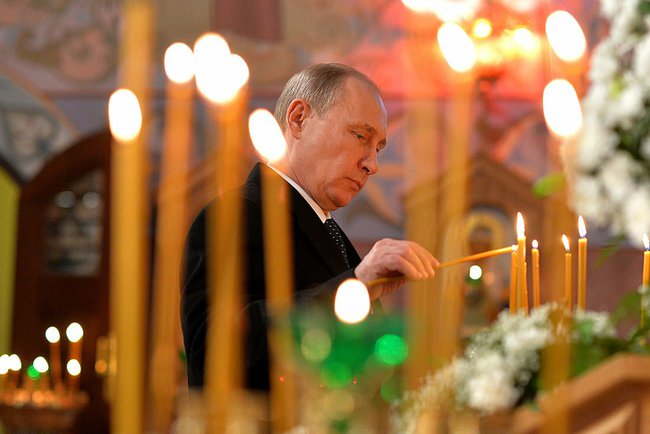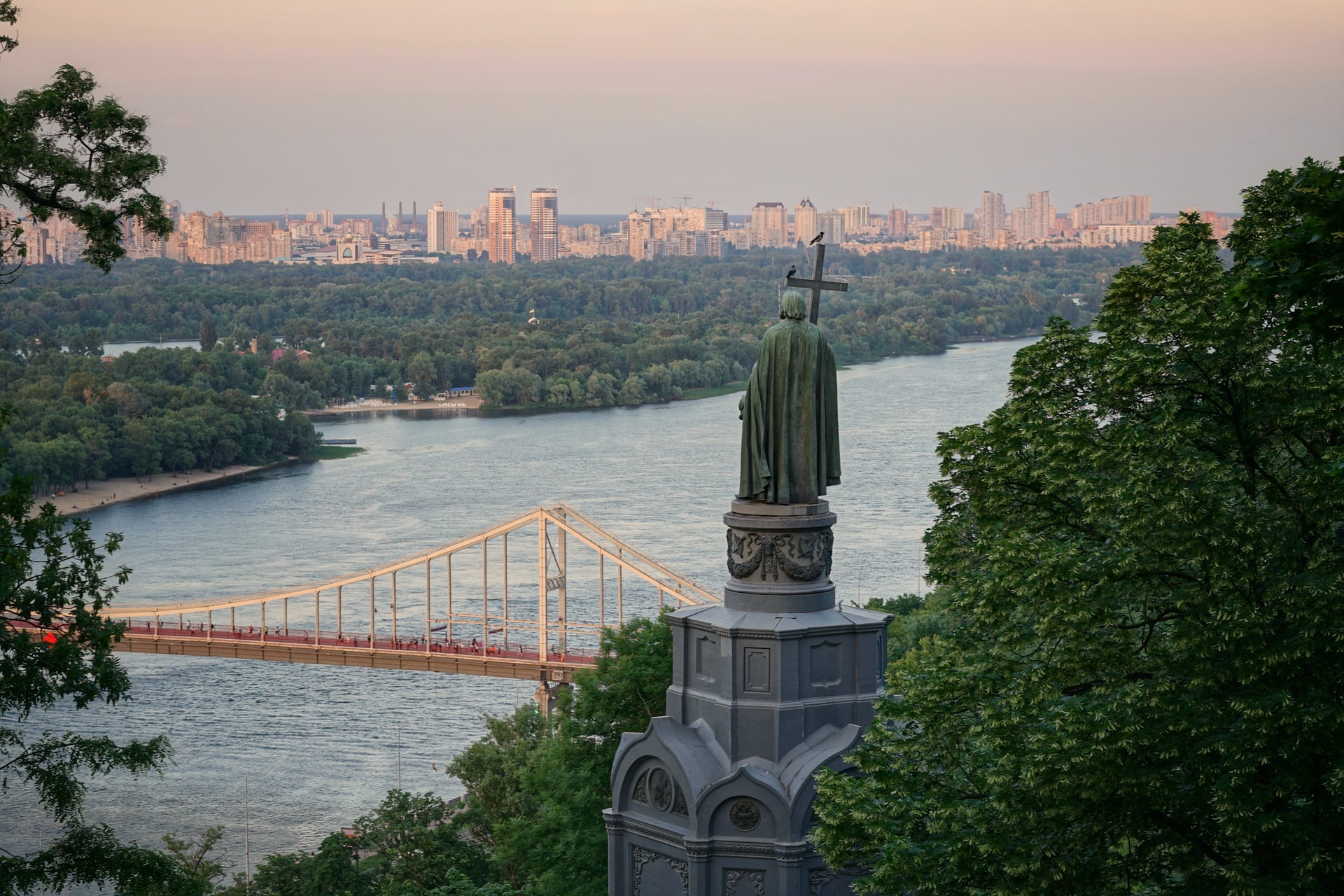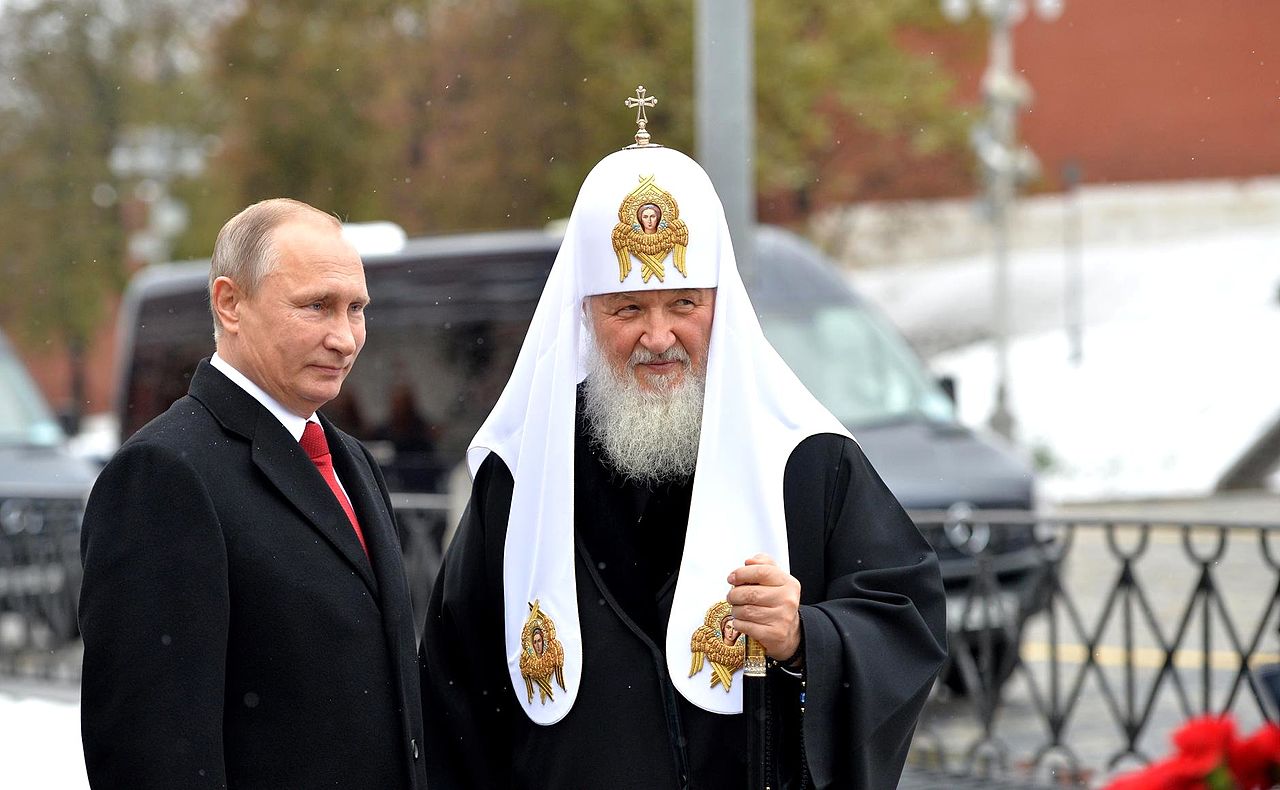In this response piece to Giles Fraser’s ‘Putin’s Spiritual Destiny‘, journalist Paul DeGroot writes about his coverage of Ukraine and the Orthodox Church. In this piece, DeGroot explains the power-based relationship between Putin and the church and how the Russian Orthodox Church could end the war.

As religion writer for the Edmonton Journal, I visited Ukraine in 1988, the 1,000th anniversary of the baptism of Vladimir the Great. Edmonton has the largest Ukrainian population of any city in Canada, and Canada has the most Ukrainians of any country outside of Russia and Ukraine itself.
On my journey through Ukraine, I could see one reason for their emigration to Canada—rippling wheat fields extending to the horizon, a common site in Canada’s prairie provinces. Ukrainians feel at home there.
In my early coverage of the baptism I made the same mistake as Giles Fraser in his recent post for RGS, who called it the “iconic act of Russian Orthodox Christianity.”
When I used similar language my mailbox was deluged with lengthy letters from religious partisans demanding that I reference the correct communion—depending on the writer, Ukrainian Orthodox, Russian Catholic, or Ukrainian Catholic. Since selecting any of these choices would only invite more lengthy correspondence, I elected to call it “the millennial anniversary of Prince Vladimir’s baptism in Kiev.” No argument there.
The baptism is generally considered to be a matter of convenience rather than faith, since the Byzantine Emperor Basil II gave his sister Anna to Vladimir in exchange for Vladimir’s help in defeating Basil’s enemies.
History is full of strongmen who sought divine permission via a public religious pantomime.
It starts in the Bible with the first child ever born, Cain. He complains to God that he deserves as much love as his brother Abel, and God counsels him to “do what is right and will you not be accepted?” Cain still believes that he can bash out his brother’s brains without consequence. Many other biblical luminaries–Jacob, Moses, David, Job, Jonah—tried to put a thumb on the scale of divine justice.
Unholy mixing of God and politics reaches its zenith in the Bible when religious leaders of Jesus’ time are asked by Pontius Pilate “Shall I crucify your king?” and they respond, “We have no king but Caesar.” We have echoes of this today in North America. Across the border in the United States substantial groups of evangelical Christians believe a recent president was sent by God, and it brings me back to that dialogue in St. John’s gospel. These pastors have sold their souls to Caesar.
Smart despots like Vladimir Putin know that co-opting a culture’s fundamental values delivers the most devoted minions of all.
Having the most guns is good. Having followers willing to die for the sake of some self-serving, quasi-religious manifest destiny is unrivalled power. Add in the assertion that wholesale slaughter of innocents is God’s (Allah’s, Shiva’s) will and guarantees a blissful afterlife, and you have an army that will never retreat.
Any suggestion that Vladimir Putin’s goal is some Russian Christian crusade leading to a Holy Russia screams for evidence, all of which is contrary. If the means to some divine end includes assassinating rivals, committing war crimes, and indiscriminate killing of innocents, spiced with lies and inventions, it has no overlap with the Prince of Peace.
Nevertheless, between the unfortunate accidents—poison, bullets—to which Putin’s enemies are prone, and Putin’s religious act, he has captured the fawning support of the Russian Orthodox hierarchy. It even sees a useful congruence between Putin’s attacks on Ukraine and Russian Orthodox attacks on the Ukrainian Orthodox church.
Imagine for a moment that the Russian Orthodox hierarchy had a collective Damascus Road experience. Imagine that the Russian Orthodox Church decided that Jesus, not Vladimir Putin, was its guide. Instead of countenancing a war whose victims undoubtedly include its own parishioners, what if it could no longer look away? What if it could not endorse war crimes, crimes against humanity, or the carnage claiming innocent lives?
Instead of licking his boots, what if the Church excommunicated Vladimir Putin for the war crimes he has directed, the assassinations he has arranged, and the threats that he will unleash weapons of mass destruction on the world unless he gets what he wants?
What if the Moscow Patriarchate warned Russian soldiers that anyone whose military unit played a role in civilian casualties, destruction of hospitals and schools, and denying escape to starving people would be denied the eucharist, marriage in the church, and baptism of their children for the next decade?
What if the church proclaimed truth from the pulpit–this war is not some limited, patriotic exercise against Nazis, but indiscriminate and repulsive slaughter of civilians? Such a challenge would be the most significant intervention of a Christian community into the policies and practices of a wayward government in modern times.
The church could quite possibly end the war.
Any military win in Ukraine might be matched by an unwillingness among the troops to support or serve in this unjustifiable conflict, knowing that participation in this brief military campaign could earn them years of personal grief.
How would Putin respond? A Stalin-style destruction of churches and execution of clergy seems unlikely. That would inflame opposition to both Putin and the war, pouring grease on Putin’s slippery grip on power. Putin is not a Stalin. He has no popular movement behind him. He has few friends and those are oligarchs whose loyalty was bought, not earned. They are not enough for a platoon, let an army, and will desert him with little remorse.
Putin is a master at upping the ante, acting or threatening action with disastrous consequences to get concessions without actually doing anything, but the church could prove a hard target if it lived up to its Christian calling. Patriarch Kirill would likely face the heat, losing his palace, his $30,000 watches, and other perks. Putin would call the church lackeys of America and NATO, but being lackeys of Putin has little reward, costs them respect, and neither America or NATO views them as allies.
A courageous challenge to Putin would win the church many friends, including some who left the church’s embrace long ago, and would be a shining example to other communities of a communion that did not confused its faith with unquestioned fealty to a political master. Their action would be seen as an authentic, inspiring, and courageous expression of a Christian response to evil.
Note: This piece gives the views of the author, and not the position of the LSE Religion and Global Society blog, nor of the London School of Economics.





